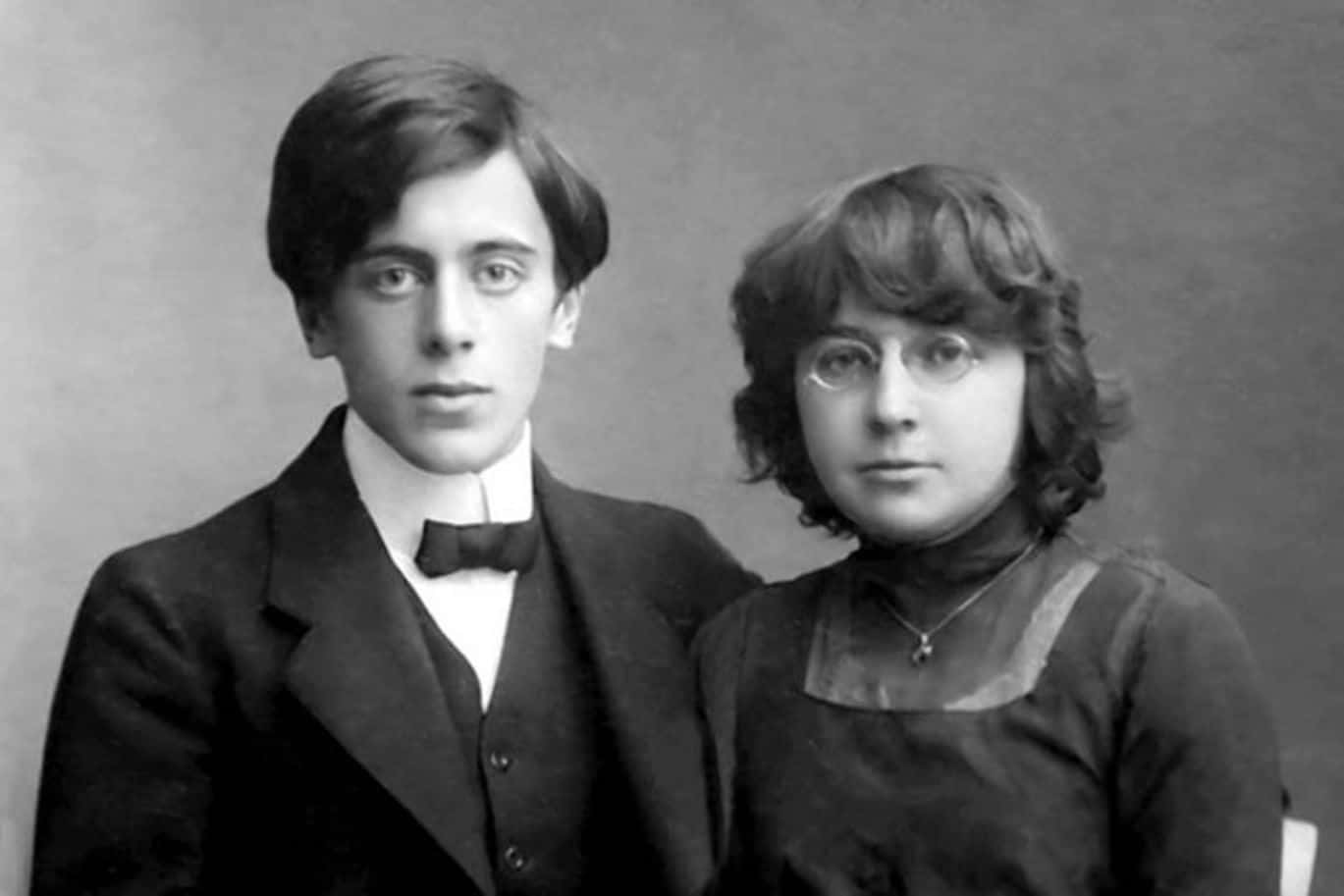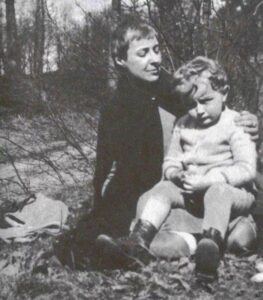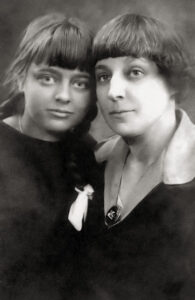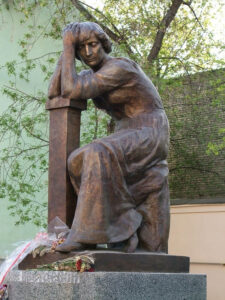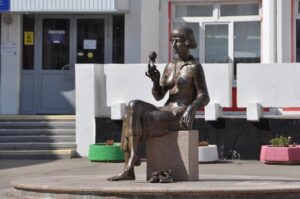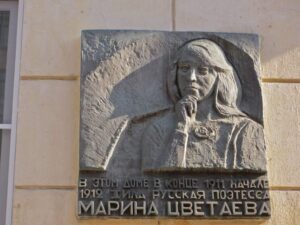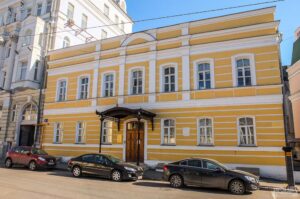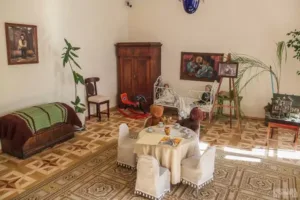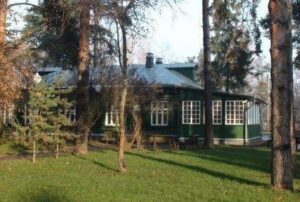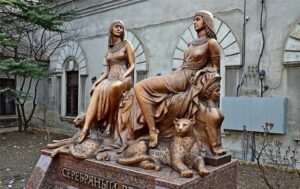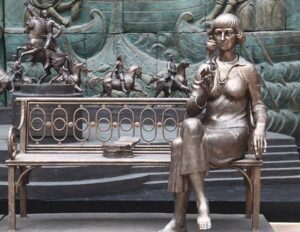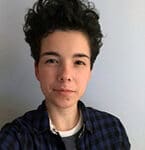Often cited as one of the greatest Russian poets of the 20th century, Marina Tsvetaeva lived a tempestuous life, from her early demonstrations of talent to her early death.
Early Life of Marina Tsvetaeva
Marina Ivanovna Tsvetaeva was born in Moscow in 1892, to Ivan Vladimirovich Tsvetaev, a professor of Fine Art and later founder of what is now known as the Pushkin Museum of Fine Arts, and Maria Alexandrovna Mein, his second wife, a concert pianist.
Tsvetaeva grew up in considerable comfort, though she had a somewhat troubled relationship with her mother, who discouraged her from writing. Her mother was also not particularly happy in her marriage to her father, which left her feeling unwanted.
Tsvetaeva was a child prodigy and a polyglot. She began at age six to write poems, first in Russian, and later in French and German as well. She also took rigorous piano lessons, practicing for four hours a day. She later chose to stop playing piano to focus on her writing, much to her mother’s dismay.
In 1902, Tsvetaeva’s mother contracted tuberculosis and the family moved abroad in hopes of helping her recover, living in Italy, Switzerland, France, and Germany before returning to Russia in 1906, the same year she died. Two years later, in 1908, at the age of 16, Tsvetaeva went to the Sorbonne in France to study literary history, and two years after that, at 18, she published her first collection of poems, Evening Album (Вечерний альбом).
From Marriage…
Evening Album got Tsvetaeva some attention, in particular from Maximilian Voloshin, a fellow poet and critic, and she began spending time at his home in the Black Sea resort of Koktobel, a haven for writers and other artists. It was there that she met Sergei Efron, and she married him within the year, at the age of 19.
Despite a number of affairs over the years, most notably, perhaps, with Osip Mandelstam and Sophia Parnok, both fellow poets, Tsvetaeva always returned to her husband. Her affairs provided her with inspiration for her poetry; Mileposts (Версты) and The Girlfriend (Подруга) were inspired by Mandelstam and Parnok, respectively. Her husband, meanwhile, provided her with children: Ariadna, born 1912, Irina, born 1917, and Georgy, born 1925.
In 1914, with the outbreak of WWI, Efron volunteered for the front, and by 1917 he was stationed in Moscow as an officer. With the arrival of the Revolution in 1917, he joined the White Army, and Tsvetaeva went to Moscow in hopes of being reunited with him, which was not to be. She ended up trapped there for five years, during which time there was a terrible famine, and, unable to support her family, she placed her daughters in a state orphanage, believing that they would be better fed. She was wrong, and though she removed Ariadna from the orphanage when she fell ill, Irina died there of starvation, causing Tsvetaeva horrible grief.
…to Exile
In 1922, after the end of the war and the loss of the White Army, Tsvetaeva and Ariadna left Russia, finally reuniting with Efron in Berlin. The family spent some time in Czechoslovakia before settling in Paris in 1925, where they would remain for over a decade.
At this time, Tsvetaeva received a small stipend from the Czechoslovak government, which was given to artists and writers who had lived in Czechoslovakia, but in large part she turned to her writing to support herself and her family, reading and selling her work, and increasingly writing prose, rather than poetry, as it made more money.
She did not get along very well with the emigre community in Paris, with many of them believing her to be insufficiently anti-Soviet, despite her clear pro-White sentiments. Instead of cultivating a better relationship with the community around her, Tsvetaeva became friends with a number of prominent poets and literary figures of the time, often writing them both letters and poems. Some were in the USSR and others were fellow emigres in other locations – they included Boris Pasternak, Rainer Maria Rilke, Anna Teskova, and others. Tsvetaeva did not completely avoid those around her in Paris – Salomea Andronikovna, a wealthy socialite, befriended her and helped to support her financially as well.
Return to Russia
Though he had fought against the Bolsheviks during the civil war, Efron found himself homesick for Russia and began to develop Soviet sympathies, to the extent that he began to work for the NKVD. Ariadna shared his pro-Soviet views, and both returned to the USSR in 1937, Efron due to his implication in the murder of a Soviet defector which had taken place in Switzerland. Tsvetaeva was left alone with her son, Georgy, and an emigre community that was increasingly hostile toward her. In 1939, she and Georgy followed the rest of their family back to Russia.
They did not receive a particularly warm welcome. There was little work for her, and the writers she had thought would help her found themselves unable or unwilling to do so in the face of Stalin’s regime, which was suspicious of anyone who had lived abroad (along with many others). Shortly after Tsvetaeva’s return, both Ariadna and Efron were arrested for espionage. Ariadna was sentenced to several years in a prison camp, and Efron was executed by firing squad.
At around the same time, the Nazis invaded the Soviet Union, and Marina and Georgy were evacuated from Leningrad to Yelabuga, located in Tatarstan (then the Tatar ASSR). Marina had even less means of providing for herself and her son in Yelabuga than she had previously, and she desperately sought work. She went in search of a job to Chistopol, also in Tatarstan, where many other writers were living, but was denied.
A few days after she returned to Yelabuga, on August 31, 1941, she hanged herself, leaving a note for her son Mur that read “Forgive me, but it would have only gotten worse. I am seriously ill, this is no longer me. I love you madly. Understand that I can’t live anymore. Tell Papa and Alya, if you see them, that I loved them to the last minute, and explain that I had reached a dead end.” She was buried on September 2 somewhere in Yelabuga, but the exact location of her grave remains unknown.
Tsvetaeva’s Poetry and Legacy
Often considered one of the four great Russian poets of the 20th century, along with Pasternak, Mandelstam, and Akhmatova, Tsvetaeva put her emotions and experiences first in her writing. Her first collection, Evening Album, focuses on the lived experience of her tranquil childhood, and many later cycles and poems were dedicated to her lovers and friends, with both bright and dark moments covered. Her cycle of poems about Sophia Parnok, for instance, sometimes called “Girlfriend,” and at other times referred to as “Mistake,” is certainly about pain and loss.
She wrote a number of poems during the civil war that showed her support for the White Army, as well as the pain and loss that she saw around her. She also touched on philosophical topics in her writing, showing interest in the nature of time and space, as well as the topic of hell.
Tsvetaeva’s poetry also had significant folk influences, with references to both folklore and folk songs. Some of her longer works, in particular, focused on these kinds of themes, such as “The Ratcatcher” (“Крысолов”), a lyrical satire loosely based on the legend of the Pied Piper. This effort was deeply political as well as artistic, with the rats quite clearly being the Bolsheviks and the Pied Piper being an embodiment of the freedom of art and creativity that could rid the city of them. The book was only allowed publication in the USSR in 1965, well after Tsvetaeva’s death.
Tsvetaeva wrote prolifically throughout her life and left a large body of work behind when she died. While her work was celebrated from the beginning, with her first collection launching her into the writing world, her earlier work is now considered to be less meaningful than her later work, which brought darker topics and emotions to the fore as the world fell apart around her.
Her last collection of lyric poems, After Russia (После России), published in 1928, is regarded by many to be her poetry’s high point, and focuses in very large part on the pain and suffering she and her neighbors and friends had experienced through the wars and revolutions.
Her work has attracted increasing attention in the English-speaking world in the years since her death, despite the difficulties her unusual vocabulary and syntax choices entail for translators. Translators often have to be very creative themselves to best capture the rhythm, mood, and meaning laid out by Tsvetaeva, which has produced a range of translations that, if compared, often surprise readers as very different renderings having come from a single translation source.
These difficulties in understanding her outside of her native and often own, idiosyncratic language are perhaps the main reason that, of the four great poets that she is often compared with, Tsvetaeva is the least known outside of Russia.
However, given the beauty and power of her poems and the unique insight they give into her life and to the important and turbulent history she lived through, there is no doubt that translators will continue to try to find the voice that can truly bring Tsvetaeva into the international canon.
| Вскрыла жилы: неостановимо, Невосстановимо хлещет жизнь. Подставляйте миски и тарелки! Всякая тарелка будет — мелкой, Миска — плоской, Через край — и мимо — В землю чёрную, питать тростник. Невозвратно, неостановимо, Невосстановимо хлещет стих. |
I opened my veins. Unstoppably life spurts out with no remedy. Now I set out bowls and plates. Every bowl will be shallow. Every plate will be small. And overflowing their rims, into the black earth, to nourish the rushes unstoppably without cure, gushes poetry… Translated by Elaine Feinstein |


